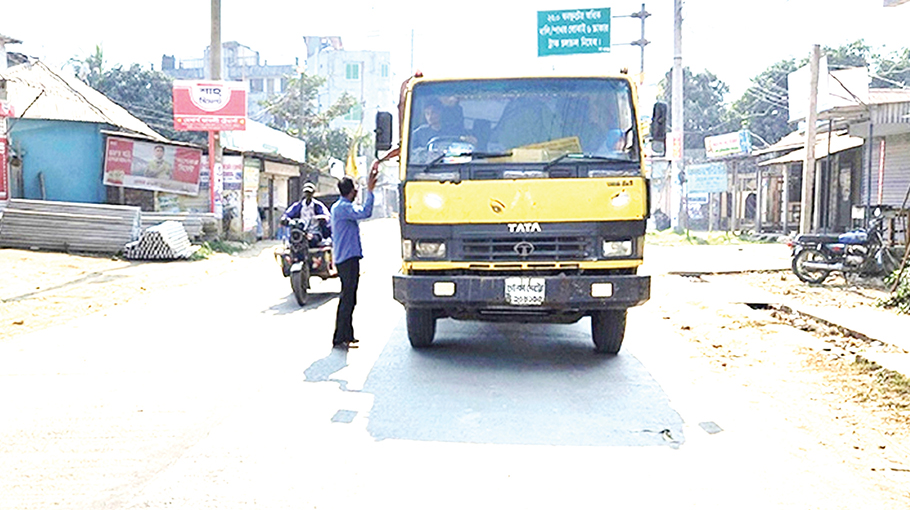Extortion anarchy in road transport sector

Extortion is still a major cause of chaos and anarchy in the road transport sector of the country.
The situation is turning very worrisome due to the involvement of a section of law-enforcement personnel, political leaders and transport leaders in the illicit acts.
Road safety experts say it is not possible to estimate the amount of extortion in the sector as thousands of unregistered vehicles ply in the country. They suggested establishing a company-based public transport system to prevent extortion and establishing the rule of law and a culture of accountability.
Extortion by cops has actually increased in the city and other areas. Extorting too much fare from passengers has become another form of extortion. The amount of extortion varies from area to area. Taka 250-500 is collected from each bus plying in the suburbs and TK 400-1000 from buses plying on inter-district routes.
In the capital, unregistered auto-rickshaws run for Tk 5,000 a month and in rural areas for Tk 300 to Tk 500 a month. Buses, minibuses, legal and illegal three-wheelers and four-wheelers, CNG-run auto-rickshaws, locally modified passenger vehicles, easybike trucks, covered vans, goods-laden vehicles including pick-up public transport vans and even trailers are the targets of extortion.
Transport workers said they have to pay extortion at specific points on city and district roads and regional and national highways to keep their transports running. Most of the extortion in the transport sector is from city service buses, especially in Dhaka city where a bus has to pay up to Tk 1,500 per bus per day to 5-10 authorities or organizations or groups, including the traffic department, city corporations and transport owners' associations.
On the other hand, experts said public transports like buses and minibuses always occupy 10-12 percent of the road space in the capital while the rest is occupied by other vehicles, illegal structures and unauthorized parking of vehicles.
Buses and trucks of various transports are often illegally occupying the roads during the night under Dhaka City Corporation. Buses plying within the city often occupy the main roads of various places including Azimpur, Gabtoli, Shyamoli, Kalyanpur, Kamalapur, Mohakhali and Motijheel, making it difficult to differentiate between roads and bus terminals.
Local public representatives and members of law enforcement agencies allow parking of vehicles illegally on the streets in exchange for bribes.
Moreover, local extortionists and political leaders are responsible for indiscriminate violation of parking laws, locals said.
According to the 2019 draft parking policy of the Dhaka Transport Coordination Authority (DTCA), commercial vehicles such as buses, trucks, covered vans, water tankers and lorries are required to pay fees to local authorities for parking exclusively on approved roads.
But often, parking fees undoubtedly end up in the wrong hands. In addition, public transport requires confirmation of parking space before registering vehicles which are often violated. It is also true that the number of cars on Dhaka roads has increased significantly. Most of the public transports like buses and human haulers play a significant role in creating traffic congestion. Their haphazard movement on the streets
of Dhaka gives little importance to traffic rules and discipline.
About 20 million people live in greater Dhaka, of which about 12 million are in the Dhaka City Corporation area where traffic congestion is high. Besides, hundreds of buses and trucks enter and exit Dhaka city every day, making the situation even worse.
In the long term, the government must plan to curb the growth of private vehicles in Dhaka and decentralize Dhaka-based services.
At the moment, as a short-term plan, we need to regularize and modernize our bus management system so that people are more inclined to use public transport services.
The need for commuter train services is stressed so that people from Narayanganj and Tongi can be encouraged to travel more by train.
There is no alternative but to develop a traffic management system by introducing a bus franchise system, including taking action against local extortionists and those responsible for indiscriminate parking violations.




